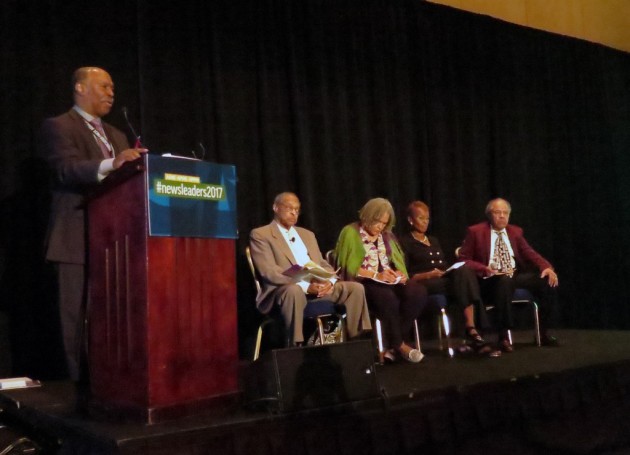Globalization, a word that invokes debate within academiccircles, refers to the growing integration of economics among worldsocieties, which can lead to the expansion of global linkages, theorganization of social life, and the growth of globalconsciousness.
The idea of globalization and its affect onwomen of African descent will be tackled at a large-scaleconference October 12- 16 at New York University inManhattan. NYU’s Institute of African American Affairs inassociation with the Organization of Women Writers of Africa, Inc.(OWWA), will be sponsoring Yari Yari Pamberi Black Women WritersDissecting Globalization: An International Conference on Literatureby Women of African Ancestry.
The goal of conference participants is toexpand and intensify the debate, continue strengthening ties amongwomen of African descent, promote literature, and create a platformfor young emerging writers to raise public awareness about globaldevelopments. Yari Yari Pamberi is open to the public isoffered at a daily rate of $25 per person , $100 per person for theentire weekend, and a discount rate of $50 for senior citizens andstudents.
Participants, including Maya Angelou, AliceWalker, Ama Ata Aidoo, Ntozake Shange, Jayne Cortez, and manyothers, will conduct panel discussions, performances, readings,workshops, exhibitions, film and video screenings, conversations,and open mike sessions to define the real meaning of globalizationand its possibilities for development.
The conference will also address many keyissues including the positive and negative possibilities ofglobalization on African American women.
“Black women writers from around the globehave been struggling against racism, exploitation, genderoppression, and other human rights violations,” said Jayne Cortez,poet and president of OWWA.
“The psychological and physiological consequences of globalizationhave been a major part of the subject matter of the contemporaryAfrican writer. In relation to Africa and African culture,the international slave trade and colonialism forced significantcontact with globalization in its early manifestations. WhatBlack women writers want is to participate in global decisionsconcerning survival and the future of humanity. They needaccess to the progress of globalization. The conference willexpand and intensify the dialogue.”
Jayne Cortez
According to Regina Duthely, a St. John’sUniversity journalism major, “Oftentimes we don’t know about thethings going on around us which affect us, Black women, in so manyways. Like many others, I had never thought about howglobalization could affect black women, so I am glad thisconference will be bringing this issue to the forefront.”


